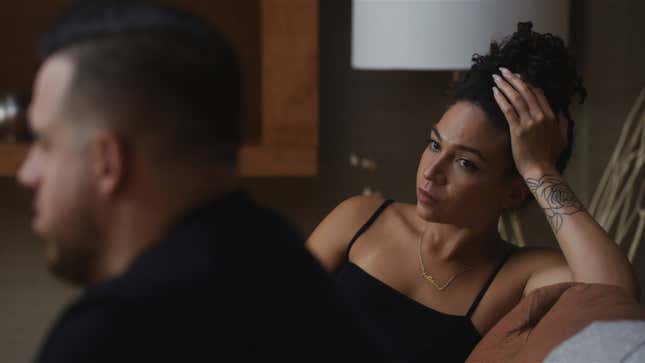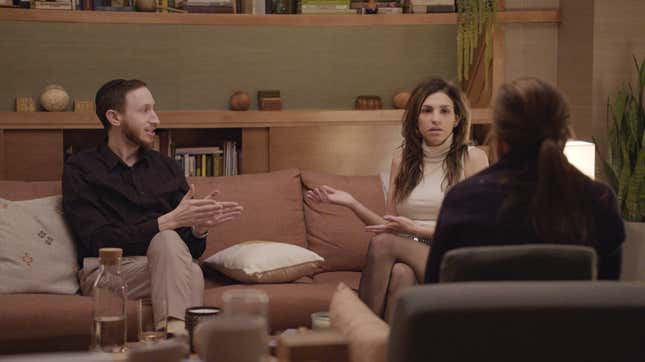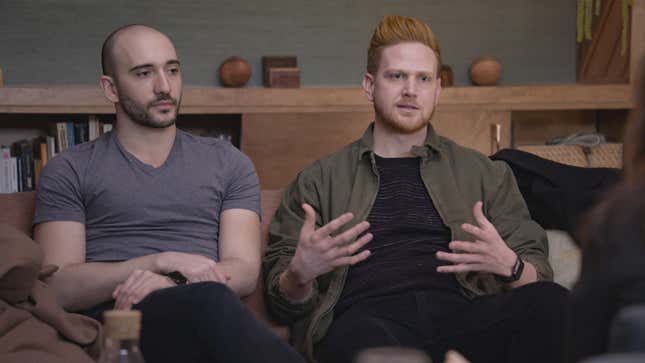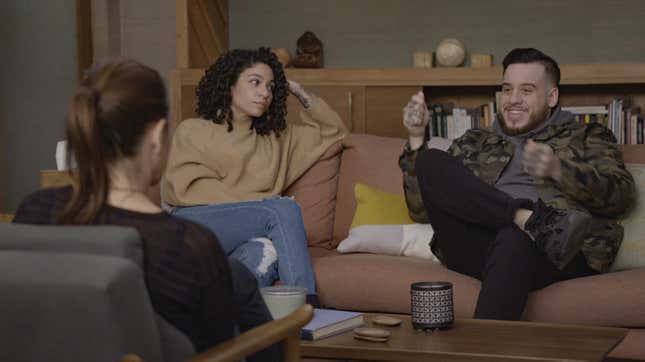Why Would Anybody Want to Put Their Therapy Sessions on Television?
“Uncomfortable” barely begins to describe conversations had on Season 2.
EntertainmentTV

In a non-televised context, subject matter regularly discussed on Showtime’s Couples Therapy would qualify as raw. “Uncomfortable” barely begins to describe conversations had the show’s Season 2 couples have with their therapist, Dr. Orna Guralnik—sometimes they’re borderline taboo. Tashira describes the attraction disparity between her and her partner, Dru: “He’s more attracted to me than I am to him.” Matthew recounts showing up intoxicated to the hospital where his partner Gianni had been admitted for a panic attack; elsewhere the newly sober Matthew discusses being blocked sexually as he has habituated mixing sex with substance. And in perhaps the most explosive example, Michal berates her husband Michael, whose characterization on the show is mostly defined by affable indifference. “You literally do nothing. You’re so lazy. Your existence is worthless right now. It’s absolutely worthless,” she tells him.
Though it’s unwise to look a gift horse in the mouth, I found myself harboring a persistent question as I watched this show that I love: Why? Why would people put themselves through this? Couples Therapy could be roughly described as reality TV, but it’s not exactly a platform for the kind of star-making stunting that can lead to an extended career in the medium. For one thing, the interactions are confined between the couples and Guralnik as the action takes place almost entirely in an office that has been outfitted with a host of hidden cameras (aside from some interstitial footage of the couples at home). Therapy is less stigmatized (and more integrated into our vernacular) than ever, but the (largely) quiet work performed on the show hardly ensures a pipeline to social-media influencing.

Interviews with all three couples who participated in Couples Therapy this season suggest two key factors that motivated them to put their relationships and work on display. The first was a sense of civic duty.
“We knew going into this that hopefully other couples would be able to relate,” said Dru, who watched the show’s first season with Tashira before she applied for them to appear on its second. “There’s a sense of comfort know that you’re not the only one.”
“Addiction is a thing, immigration is a thing, there are lots of topics where people can relate and see themselves in us,” Gianni told Jezebel. (He and Matthew were the only couple that appeared separately on Zoom. Gianni was in Italy, while Matthew was connecting from Baltimore, where he is working. Like the rest, they remain a couple.) “It was a good opportunity to share our story and somehow help each other and maybe help someone else.”
The second factor was Guralnik, whose skill had been on full display last season. She is ferociously intelligent, enviably empathetic, and deftly capable of projecting simultaneous warmth and a refusal to suffer bullshit.
“Who wouldn’t want to have therapy with Orna?” said Tashira.
“I just fell in love with her way of practice,” said Dru.
“When we got a peek at Orna as a person, we decided okay, let’s go deeper and deeper and see how it goes,” said Michael, who applied for the show via a Facebook ad and then went back and watched its first season.
-

-

-

-

-

-

-

-

-

-

-

-

-

-

-

-

-

-

-

-

-

-

-

-

-

-

-

-

-

-

-

-

-

-

-

-

-

-

-

-










































